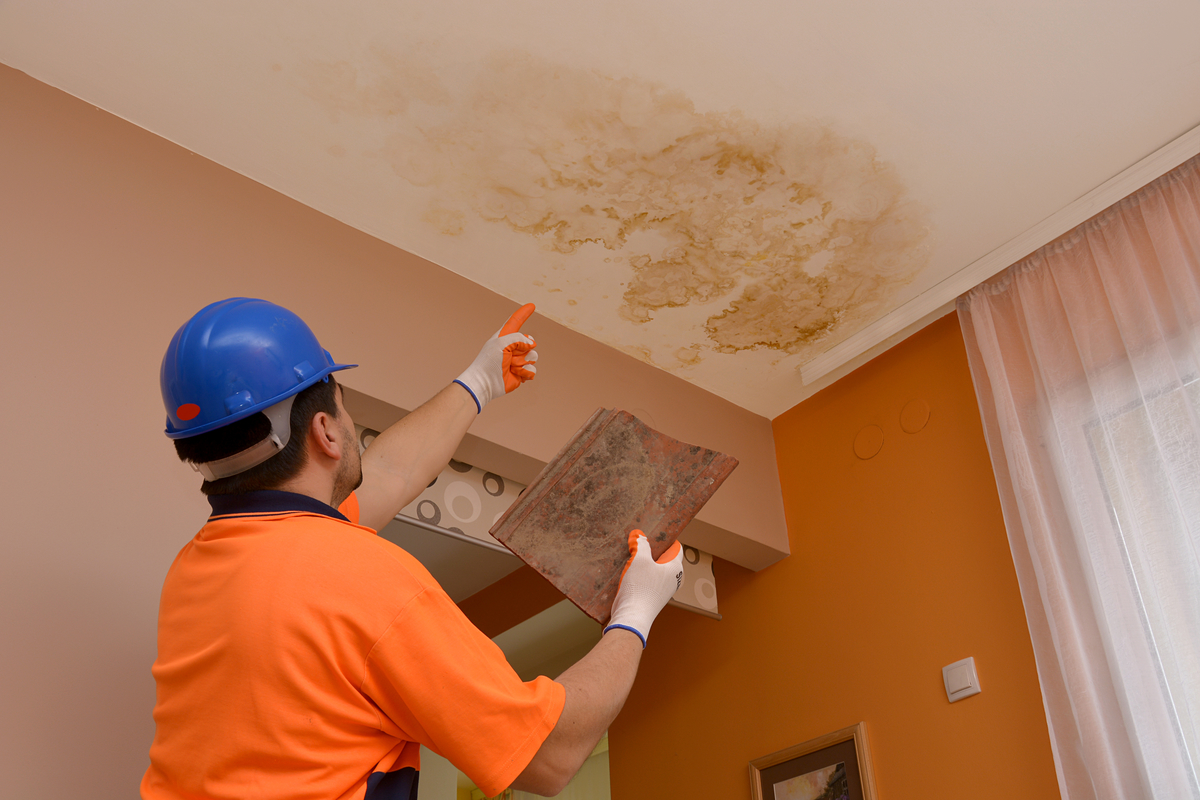Expose Typical Causes of Leakage Inside Your Home
Expose Typical Causes of Leakage Inside Your Home
Blog Article
This article which follows involving How to detect water leaks in your home is truly interesting. Don't miss out on it.

Leaks not only create waste of water yet can likewise trigger unnecessary damages to your house and also promote undesirable organic growth. By comprehending as well as looking for day-to-day scenarios that cause leakages, you can safeguard your residence from future leaks and unnecessary damages.
Elbowing in roots
Many water leakages start outside your home as opposed to inside it. If you see an abrupt reduction in water stress, state in your tap, take time to go out and analyze your backyard. You might observe wet spots or sinkholes in your yard, which might suggest that tree roots are invading water lines triggering water to seep out. You can have your plumber look for invasion, particularly if you have trees or shrubs near your home.
Rusty water supply
This may be the reason of discoloration or bending on your water pipelines. If our plumbing system is old, consider changing the pipes because they are at a higher risk of corrosion than the newer versions.
Defective Pipe Joints
Pipe joints can weaken over time, resulting in water leaks. If you have loud pipes that make ticking or banging noises, especially when the hot water is transformed on, your pipe joints are probably under a lot of pressure.
Immediate temperature level modifications.
Severe temperature level modifications in our pipes can create them to broaden and get all of a sudden. This expansion and tightening may cause cracks in the pipelines, particularly if the temperature are below cold.
Poor Water Connectors
Sometimes, a leak can be triggered by loose pipes and pipelines that provide your home appliances. Usually, moving is what creates the loosened water Connections. You could discover when it comes to a washing machine, a hose may spring a leak because of shaking throughout the spin cycle. In case of a water connections leakage, you may observe water running directly from the supply line or pools around your home appliances.
Obstructed Drains
Clogged drains could be bothersome and also inconveniencing, but they can occasionally wind up causing an overflow causing burst pipes. Keep removing any type of products that may decrease your drains that might obstruct them to avoid such troubles.
All the above are reasons for leaks yet not all water leaks result from plumbing leaks; some leakages could come from roof leaks. All leaks need to be fixed right away to prevent water damages.
Leaks not only trigger waste of water but can also trigger unneeded damages to your residence and also promote unwanted organic growth. By recognizing and also looking for daily circumstances that trigger leakages, you can secure your residence from future leakages as well as unnecessary damage. Today, we will look at six leak causes that may be causing your pipes to drip.
At times, a leakage can be caused by loose hoses and pipes that supply your appliances. In case of a water connections leak, you may discover water running directly from the supply line or puddles around your appliances.
How To Check For Water Leak In Your Home
How To Check for Leaks
The average household's leaks can account for nearly 10,000 gallons of water wasted every year and ten percent of homes have leaks that waste 90 gallons or more per day. Common types of leaks found in the home are worn toilet flappers, dripping faucets, and other leaking valves. These types of leaks are often easy to fix, requiring only a few tools and hardware that can pay for themselves in water savings. Fixing easily corrected household water leaks can save homeowners about 10 percent on their water bills.
To check for leaks in your home, you first need to determine whether you're wasting water and then identify the source of the leak. Here are some tips for finding leaks:
Take a look at your water usage during a colder month, such as January or February. If a family of four exceeds 12,000 gallons per month, there are serious leaks.
Check your water meter before and after a two-hour period when no water is being used. If the meter changes at all, you probably have a leak.
Identify toilet leaks by placing a drop of food coloring in the toilet tank. If any color shows up in the bowl after 10 minutes, you have a leak. (Be sure to flush immediately after the experiment to avoid staining the tank.)
Examine faucet gaskets and pipe fittings for any water on the outside of the pipe to check for surface leaks.
Undetected water leaks can happen without the home or business owner even realizing. If you suspect a water leak, but not able to find the source. It is time to contact a professional water leak detection service, The Leak Doctor.
How To Find a Water Leak In Your Home
https://www.leakdoctor.com/blog/How-To-Check-For-Water-Leak-In-Your-Home_AE197.html

I ran across that review on How to detect water leaks in your home when doing a search on the internet. Sharing is caring. One never knows, you might be doing someone a favor. Kudos for your time. Visit us again soon.
Book Now! Report this page